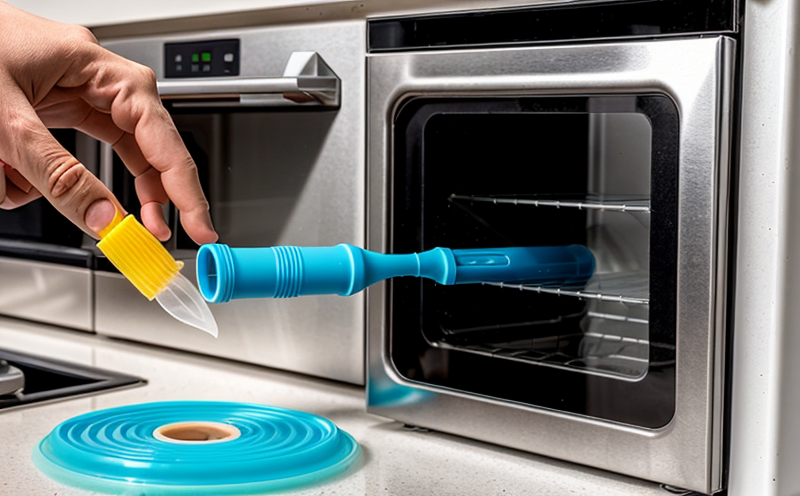ISO 16245 Plastics Archival Quality Testing for Household Use
The ISO 16245 standard specifically addresses the evaluation of plastics intended for long-term storage and use in archival applications. This service is particularly relevant to household items like storage containers, toys, and other products that require durability over extended periods.
Household plastic products often come into contact with various environmental factors such as temperature fluctuations, humidity, and exposure to sunlight. These conditions can lead to degradation of the material properties, affecting their longevity and safety. Our ISO 16245 testing ensures that household plastics maintain their integrity and performance over time.
The test parameters for this service include the measurement of physical and chemical stability under controlled environmental conditions. Specimens are subjected to accelerated aging tests in a temperature-humidity chamber, simulating real-world exposure scenarios. The goal is to predict long-term behavior by analyzing short-term changes.
Our expertise lies in ensuring that the testing meets international standards such as ISO 16245:2017, which provides detailed procedures for evaluating plastics used in archival applications. This includes specifying the types of tests and conditions under which samples should be exposed to ensure accurate assessment.
The service involves meticulous specimen preparation where each sample undergoes rigorous cleaning and conditioning processes before testing begins. The choice of test specimens is critical as it directly influences the outcome, ensuring that all relevant aspects are covered comprehensively.
Instrumentation plays a crucial role in this process. We use state-of-the-art equipment capable of precise measurement and monitoring throughout the test duration. This includes temperature-controlled chambers for humidity cycling, UV radiation simulators for photodegradation studies, and spectrophotometers for color stability analysis.
The acceptance criteria are based on industry best practices and include tolerances within specified ranges deemed acceptable for archival quality plastics. Compliance with these standards guarantees that the tested household plastics will maintain their intended function and safety throughout their lifecycle.
Scope and Methodology
| Test Parameter | Description | Procedure |
|---|---|---|
| Temperature Cycling | Exposure of samples to alternating high and low temperatures. | Temperatures vary between 25°C and -40°C, with dwell times specified by the standard. |
| Humidity Cycling | Simulating real-world environmental conditions affecting plastic performance. | Relative humidity levels range from 10% to 95%, also with specific dwelling times as per ISO 16245 guidelines. |
| Test Parameter | Description | Procedure |
|---|---|---|
| UV Radiation Exposure | Evaluating the impact of sunlight on plastic properties. | Exposure to artificial UV light sources, simulating natural solar radiation for a defined period. |
| Spectrophotometric Analysis | Determining changes in color and optical properties due to aging. | Measurement using spectrophotometers before and after exposure periods. |
Benefits
By adhering strictly to ISO 16245 standards, we provide clients with reliable data that can significantly enhance product quality and reliability. This service ensures that household plastics meet stringent durability requirements, thereby extending their useful life span.
Our testing helps manufacturers identify potential issues early in the development phase, allowing them to make necessary adjustments promptly. This proactive approach not only improves product performance but also reduces costs associated with post-market recalls or failures.
Compliance with ISO 16245 standards is crucial for businesses aiming to meet regulatory requirements and gain market acceptance. It establishes credibility among consumers by demonstrating a commitment to producing high-quality, safe products that last longer.
In addition to enhancing product performance, this service also supports brand reputation building. Customers trust brands that demonstrate exceptional quality control through rigorous testing protocols like those outlined in ISO 16245.
Competitive Advantage and Market Impact
The ability to accurately assess the archival qualities of household plastics provides a significant competitive edge. It enables manufacturers to offer products that not only meet but exceed industry expectations, setting standards for durability and safety.
This service contributes positively to the broader market by fostering innovation within the sector. By pushing boundaries in terms of material selection and processing techniques, businesses can introduce more robust solutions addressing current challenges faced by consumers worldwide.
Moreover, compliance with international standards like ISO 16245 enhances global trade opportunities for manufacturers. It facilitates smoother transactions across borders, reducing barriers to entry into new markets.





